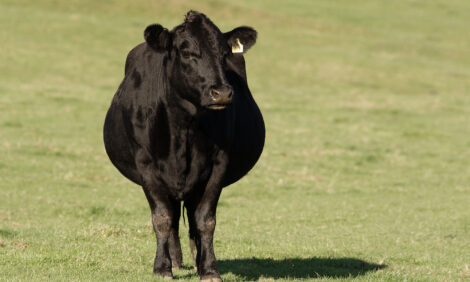



Poor Temperment Could Mean Poor Performance
Temperamental cattle can be a hazard to themselves and to the people handling them as well as to other cattle. Compared to calm cattle, cattle exhibiting a heightened temperament are noted to spend more time inspecting their surroundings or responding to environmental “fears” instead of consuming forage or supplements, writes Dr Jeremy Powell from University of Arkansas.As cattle temperament worsens, their response to human contact or any other stimuli can directly affect their performance. To better understand the implications of temperament on beef cattle production, recent studies at Oregon State University evaluated the impacts of temperament on gain performance, reproduction and health parameters.
Among other measures, researchers assessed the temperament of cattle using a 1 to 5 scale (Figure 2) developed for scoring cattle while in the chute. In regard to reproduction, beef cows with greater average temperament scores (aggressive) had reduced pregnancy rates com pared to cows that exhibited lower (calmer) scores. Furthermore, cows with greater average temperament scores had decreased weaning rates and reduced pounds of calf weaned/cow exposed compared to cows with lower average scores.
| Figure 1. |
|---|
| Five-point temperament scoring system |
| 1 = calm with no movement |
| 2 = restless movements |
| 3 = frequent movement with vocalization |
| 4 = constant movement, vocalization, shaking of the chute |
| 5 = violent and continuous struggling |
| Ref.: Cooke et al., 2009 |
Cows with greater average temperament scores had decreased weaning rates and reduced pounds of calf weaned/cow exposed compared to cows with lower average scores.
The group also investigated temperament of feeder calves and its effects on growth performance. Calves exhibiting calmer temperaments had increased weaning weights and increased weaning calf values as well as increased carcass weights and marbling scores at harvest. An association was also noted between temperament and blood cortisol, a hormone in the blood associated with stress response. Cattle with excitable temperament have increased blood cortisol concentrations which could lead to further changes in body physiology, immune response and overall health.
Temperament is a heritable trait in cattle. Producers can assess temperament in replacement heifers when handled during vaccination or weaning to determine if they should be culled. Furthermore, many breed association have now developed EPDs that can be utilized by producers to select cattle with a more favorable temperament.
Research conducted on cattle behavior has concluded that a poor temperament can equate to poor performance. Therefore, it is important to remember that poor temperament can lead to detrimental effects on growth, reproduction and overall performance in cattle, and strategies to improve temperament can be utilized to optimize production efficiency of beef operations. For more information about cattle management practices, contact your county Extension office.


